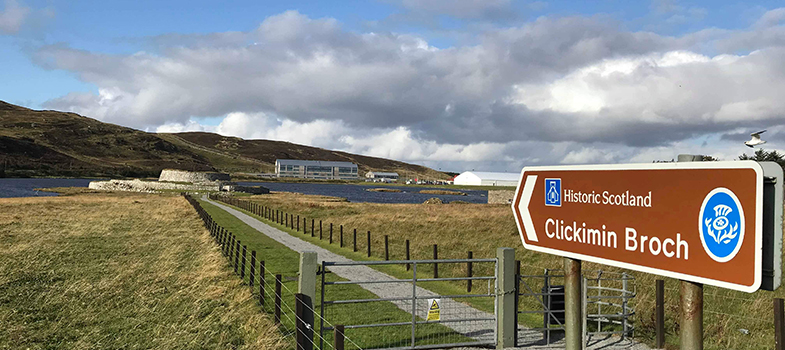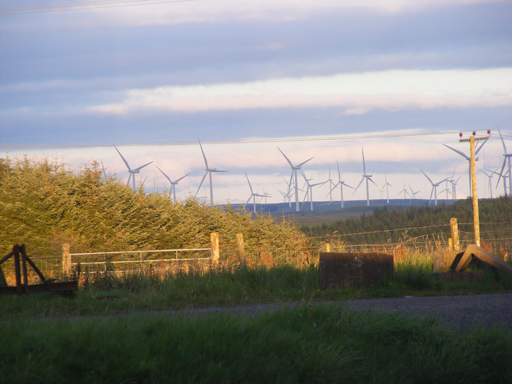11. Introductory handsel
A Scots word and example sentence to learn:
Tirlick [Tip: hold Ctrl and click a link to open it in a new tab. (Hide tip)]
Definition: to cause to rotate or spin, to turn, twirl.
In Orkney in particular, the word has changed its meaning slightly in recent decades, and is now used to refer to any modern wind turbine. The word derives from the Scots verb tirl, meaning to rotate, and has the additional diminutive ending ‘…ick’:
Example sentence: “Jist aboot every ferm in Orkney and Shetland his its own tirlick noo.”
English translation: “Nearly every farm in Orkney and Shetland has its own wind turbine now.”
Activity 2
Click to hear the sentence above read by a Scots speaker.
You can then make your own recording and play it back to check your pronunciation.
Transcript
Listen
Jist aboot every ferm in Orkney and Shetland his its own tirlick noo.
Model
Jist aboot every ferm in Orkney and Shetland his its own tirlick noo.
Related word:
Definition: Evening twilight, dusk.
Example sentence: “Yon photo abun shaas the gloamin...”
English translation: “That photo above shows the evening twilight...”
Activity 3
Click to hear the sentence above read by a Scots speaker.
You can then make your own recording and play it back to check your pronunciation.
Transcript
Listen
Yon photo abun shaas the gloamin...”
Model
Yon photo abun shaas the gloamin...”
Language Links
The Scots noun gloamin(g) has an interesting and very long history, and exists in a range of different languages where it is used as a noun or a verb – yet all its meanings in the different languages have to do with exuding light that can also look like fire. Older Scots has used the words glo(a)ming, glowming, etc. from around 1420 to describe evening twilight or dusk. The Old English language used glōmung, meaning twilight.
A derivation of this also exists in the German language today, the noun or verb glühen, meaning to glow or slowly burn. In Old High German the verb gluoen, with this meaning, was used in the 9th century. In the Middle Ages this verb appeared in a variety of Germanic languages as glüe(je)n, glüewen, glōian, glöyen, gloeyen, orglōyen. In Dutch we find the verb as gloeien.
Introduction


